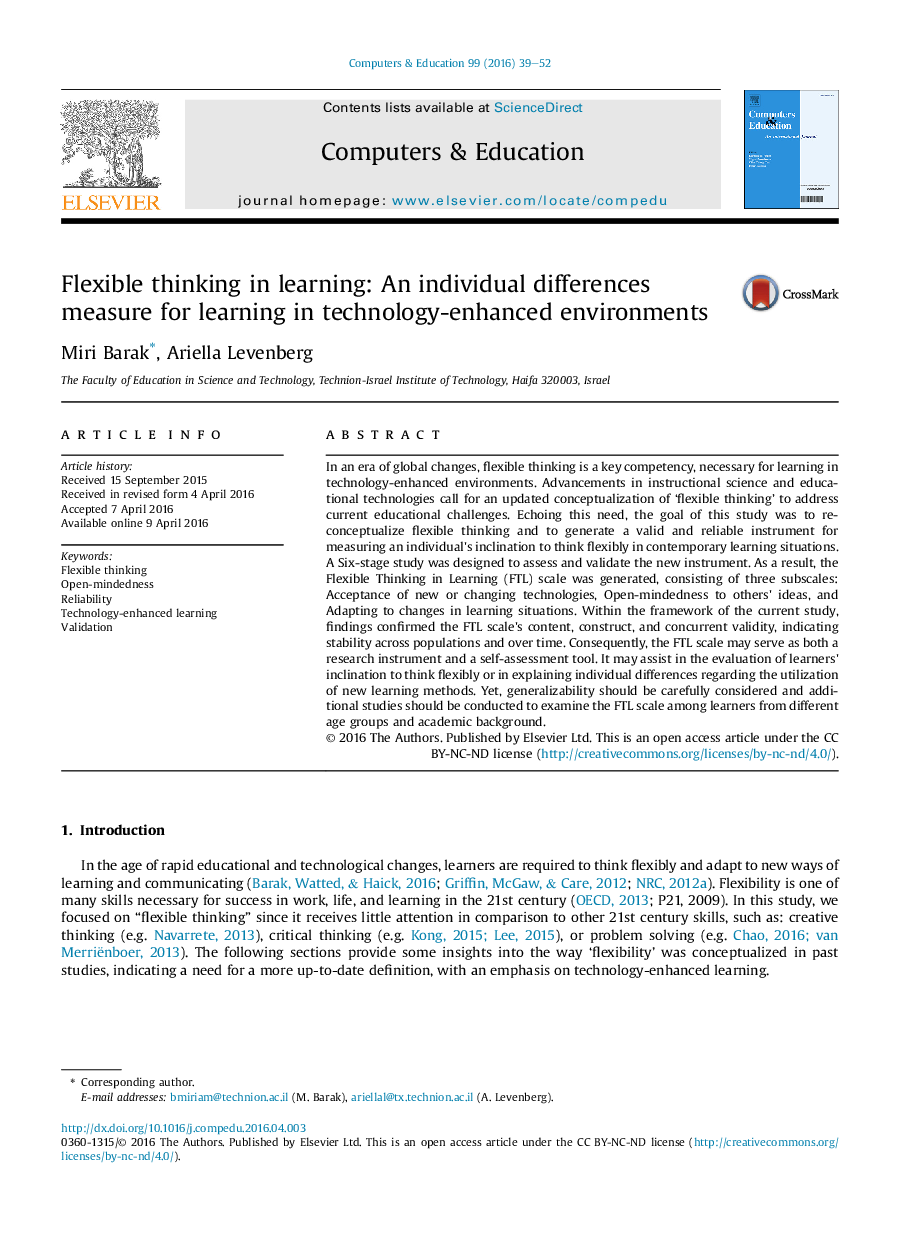| Article ID | Journal | Published Year | Pages | File Type |
|---|---|---|---|---|
| 6834855 | Computers & Education | 2016 | 14 Pages |
Abstract
In an era of global changes, flexible thinking is a key competency, necessary for learning in technology-enhanced environments. Advancements in instructional science and educational technologies call for an updated conceptualization of 'flexible thinking' to address current educational challenges. Echoing this need, the goal of this study was to re-conceptualize flexible thinking and to generate a valid and reliable instrument for measuring an individual's inclination to think flexibly in contemporary learning situations. A Six-stage study was designed to assess and validate the new instrument. As a result, the Flexible Thinking in Learning (FTL) scale was generated, consisting of three subscales: Acceptance of new or changing technologies, Open-mindedness to others' ideas, and Adapting to changes in learning situations. Within the framework of the current study, findings confirmed the FTL scale's content, construct, and concurrent validity, indicating stability across populations and over time. Consequently, the FTL scale may serve as both a research instrument and a self-assessment tool. It may assist in the evaluation of learners' inclination to think flexibly or in explaining individual differences regarding the utilization of new learning methods. Yet, generalizability should be carefully considered and additional studies should be conducted to examine the FTL scale among learners from different age groups and academic background.
Related Topics
Social Sciences and Humanities
Social Sciences
Education
Authors
Miri Barak, Ariella Levenberg,
